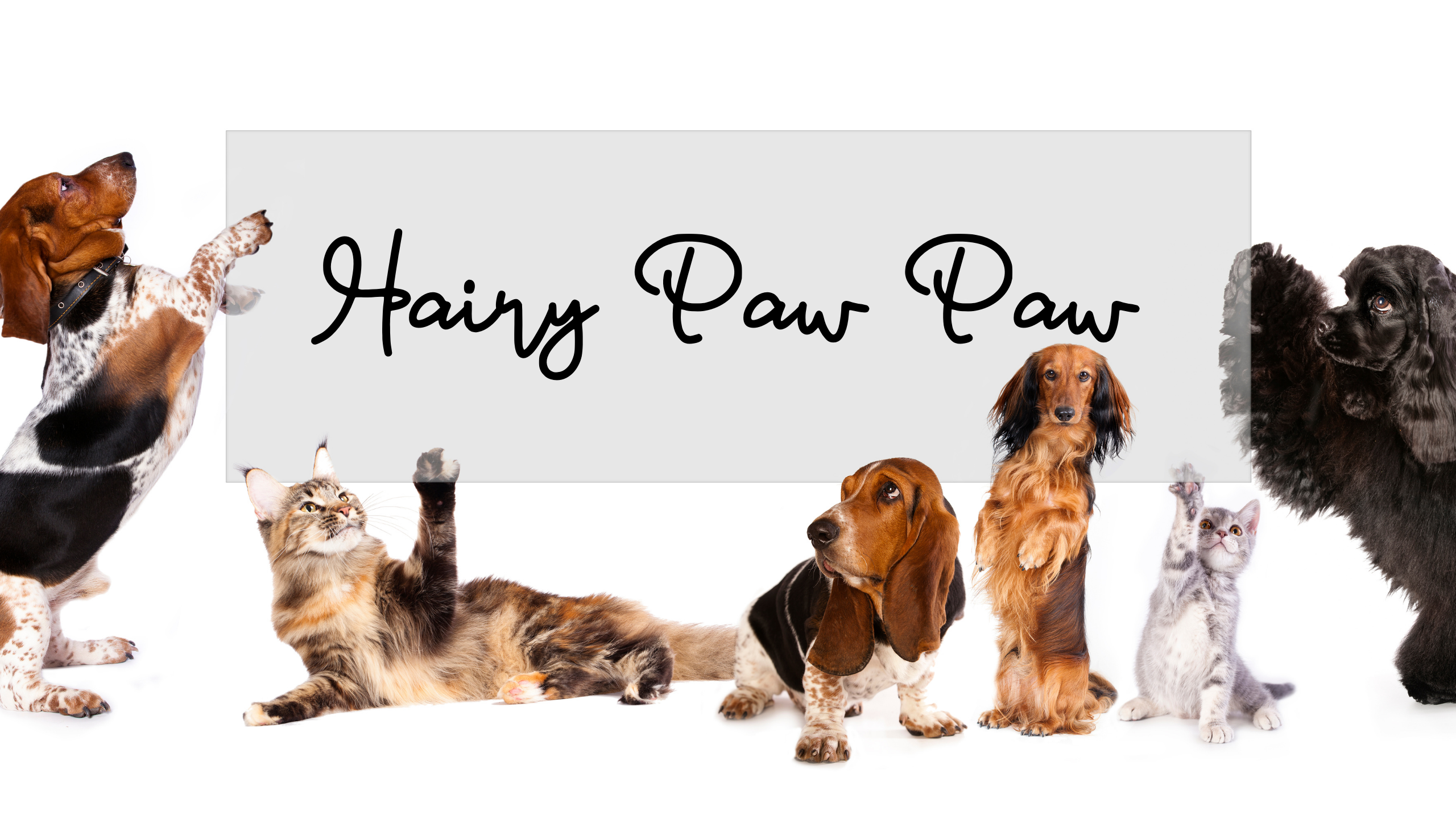This “Best Foods for Maine Coon: Feeding Tips and Nutrition Advice” post may contain affiliate links, which means I’ll receive a commission if you purchase through my link, at NO EXTRA COST TO YOU
Best Foods for Maine Coon: Feeding Tips and Nutrition Advice
Maine Coons are among the largest and most majestic cat breeds, known for their gentle nature and striking appearance. To keep them healthy and full of energy, a proper diet is crucial. This guide explores the best foods for Maine Coons, along with practical feeding tips and essential nutrition advice.
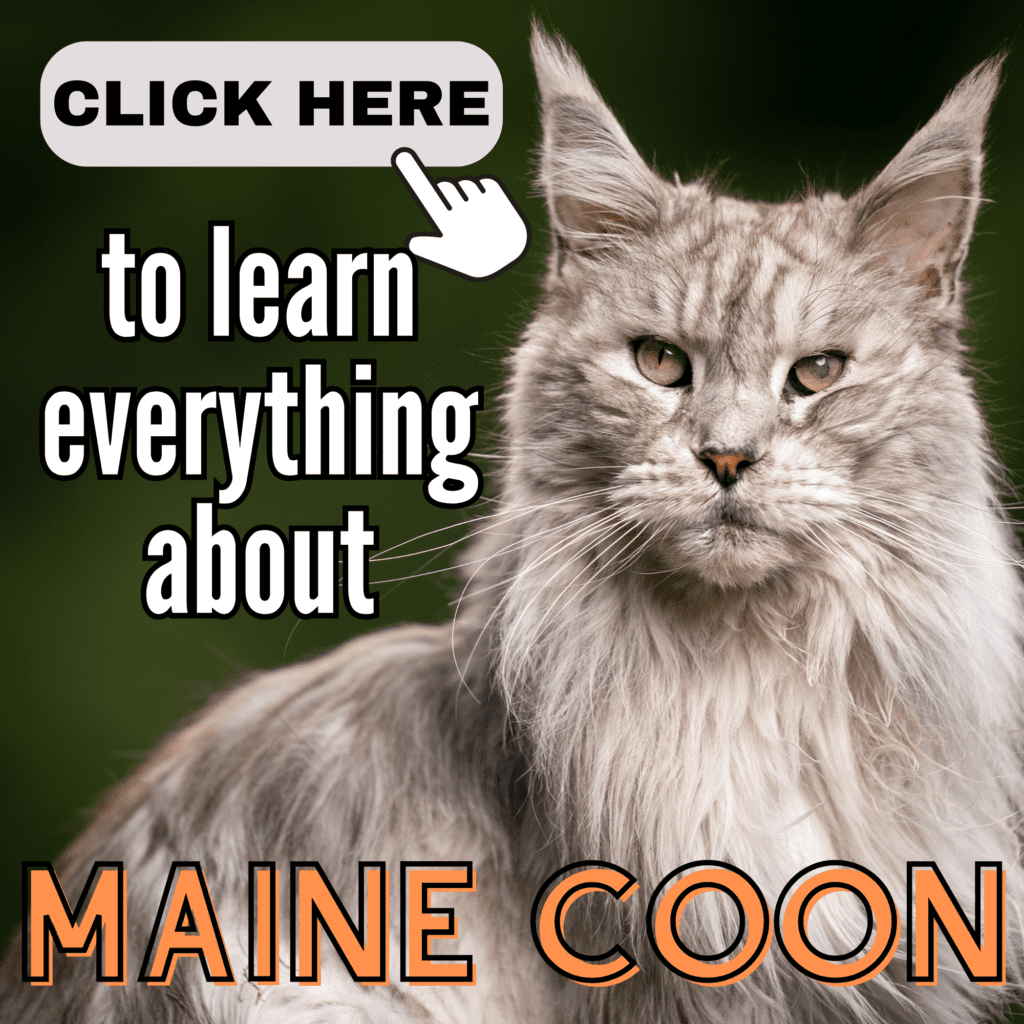
Understanding Maine Coon Nutritional Needs
Maine Coons require a diet rich in high-quality protein, healthy fats, and essential vitamins. Because of their large size, they need more calories than smaller cat breeds. However, this doesn’t mean overfeeding. A well-balanced diet ensures their overall health without unnecessary weight gain.
- Protein for Muscle Maintenance: Focus on animal-based proteins like chicken, turkey, and fish.
- Healthy Fats for Energy: Include omega-3 and omega-6 fatty acids to maintain a shiny coat and healthy skin.
- Vitamins and Minerals for Vitality: Ensure their diet contains taurine, calcium, and essential antioxidants.
Top 10 Best Foods for Maine Coons
1. Royal Canin Maine Coon Adult Dry Cat Food
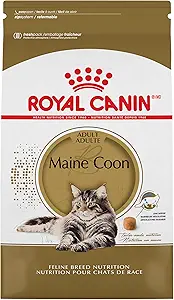
Features:
- Tailored specifically for Maine Coons.
- High protein content for muscle maintenance.
- Includes heart-healthy taurine and omega-3 fatty acids.
Pros:
- Supports joint health.
- Promotes a healthy coat.
- Large kibble size fits their big jaws.
Cons:
- Limited variety for picky eaters.
- More expensive than generic brands.
2. Hill’s Science Diet Adult Indoor Cat Food
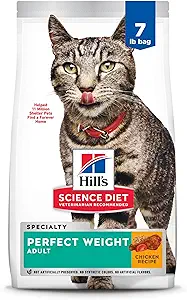
Features:
- High-quality chicken as the first ingredient.
- Specially formulated for indoor cats.
- Antioxidants for immune support.
Pros:
- Easy to digest.
- Keeps indoor cats at a healthy weight.
- Reduces hairballs effectively.
Cons:
- May not appeal to all Maine Coons.
- Lower protein levels than some competitors.
3. Blue Buffalo Wilderness High Protein Grain-Free Dry Cat Food
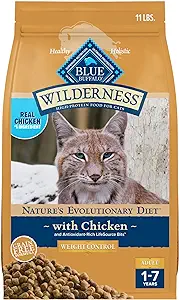
Features:
- Grain-free with high animal protein content.
- Packed with vitamins, minerals, and antioxidants.
- Includes LifeSource Bits for immune support.
Pros:
- Free from artificial preservatives.
- Perfect for cats with grain sensitivities.
- Promotes lean muscle development.
Cons:
- Smaller kibble size may not suit all Maine Coons.
- Some cats may dislike LifeSource Bits.
4. Wellness CORE Grain-Free Wet Cat Food
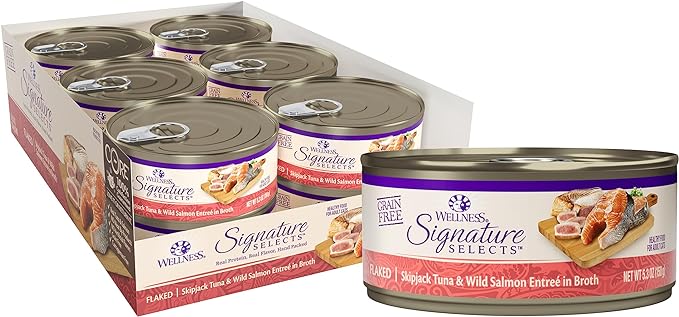
Features:
- Free from fillers and by-products.
- High moisture content for hydration.
- Made with real chicken and turkey.
Pros:
- Ideal for cats who prefer wet food.
- Supports urinary health.
- Great for picky eaters.
Cons:
- Requires refrigeration after opening.
- More expensive per serving than dry food.
5. Purina Pro Plan Specialized Large Breed Cat Food
Features:
- Designed for larger cat breeds like Maine Coons.
- Rich in protein and essential nutrients.
- Includes prebiotic fiber for digestive health.
Pros:
- Supports joint and bone health.
- Improves digestion.
- Affordable for premium quality.
Cons:
- Limited availability in some regions.
- Slightly lower fat content than some alternatives.
6. Orijen Cat & Kitten Grain-Free Dry Food
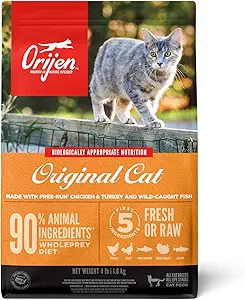
Features:
- Biologically appropriate with whole prey ingredients.
- Includes fresh, raw, and freeze-dried ingredients.
- Rich in protein and healthy fats.
Pros:
- Mimics a natural feline diet.
- Provides long-lasting energy.
- Enhances skin and coat health.
Cons:
- High cost compared to mainstream brands.
- Strong smell may not appeal to all cats.
7. Tiki Cat Born Carnivore Dry Cat Food
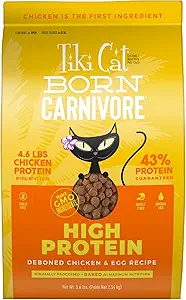
Features:
- 44% protein content for active cats.
- Includes chicken, fish, and eggs.
- Grain-free and low carbohydrate formula.
Pros:
- Excellent for maintaining muscle mass.
- Promotes balanced energy levels.
- Suitable for sensitive stomachs.
Cons:
- May require a gradual transition to avoid stomach upset.
- Limited availability of larger bag sizes.
8. Stella & Chewy’s Freeze-Dried Raw Cat Food
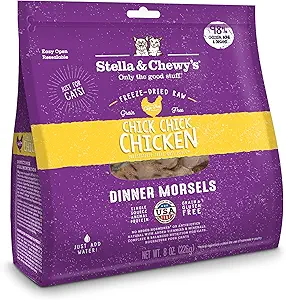
Features:
- Free from grains and artificial additives.
- Freeze-dried raw diet with real meat.
- Fortified with vitamins and minerals.
Pros:
- Provides a raw diet option.
- Convenient to store and serve.
- Highly palatable for most cats.
Cons:
- Higher price point.
- Requires rehydration before serving.
9. Instinct Raw Boost Mixers for Cats
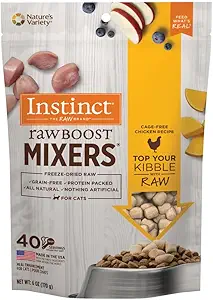
Features:
- Grain-free with natural ingredients.
- Freeze-dried raw pieces mixed with kibble.
- High protein with added probiotics.
Pros:
- Supports healthy digestion.
- Enhances taste and texture variety.
- Adds raw nutrition to any meal.
Cons:
- Some cats may prefer one component over the other.
- Requires gradual introduction.
10. Fancy Feast Gourmet Naturals Wet Cat Food
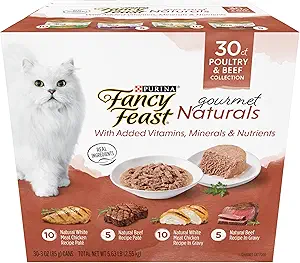
Features:
- Available in multiple flavors for variety.
- High-quality protein with natural ingredients.
- No artificial flavors or colors.
Pros:
- Budget-friendly option.
- Great for cats who enjoy wet food.
- Provides essential hydration.
Cons:
- Lower protein levels than premium brands.
- Cans are small, requiring frequent purchases.
Feeding Tips for Maine Coons
- Portion Control Is Key
Always measure food portions based on their weight and activity level. Overfeeding leads to obesity, which strains their joints. - Mix Wet and Dry Food
Combining wet and dry food ensures hydration and dental health. Aim for a balance that suits their preferences. - Stick to a Schedule
Feed your Maine Coon at the same times daily. Consistency helps with digestion and prevents overeating. - Monitor Their Weight
Check their body condition regularly. Adjust portions if they appear underweight or overweight. - Choose High-Quality Treats
Limit treats to no more than 10% of their daily caloric intake. Opt for nutritious options that complement their diet.
Conclusion
Maine Coons deserve the best nutrition to support their size, energy, and health. By choosing high-quality foods and maintaining a consistent feeding routine, you ensure your Maine Coon thrives. Whether you opt for dry kibble, wet food, or raw options, always prioritize their unique nutritional needs.
Invest in their diet today and enjoy a happy, healthy companion for years to come!
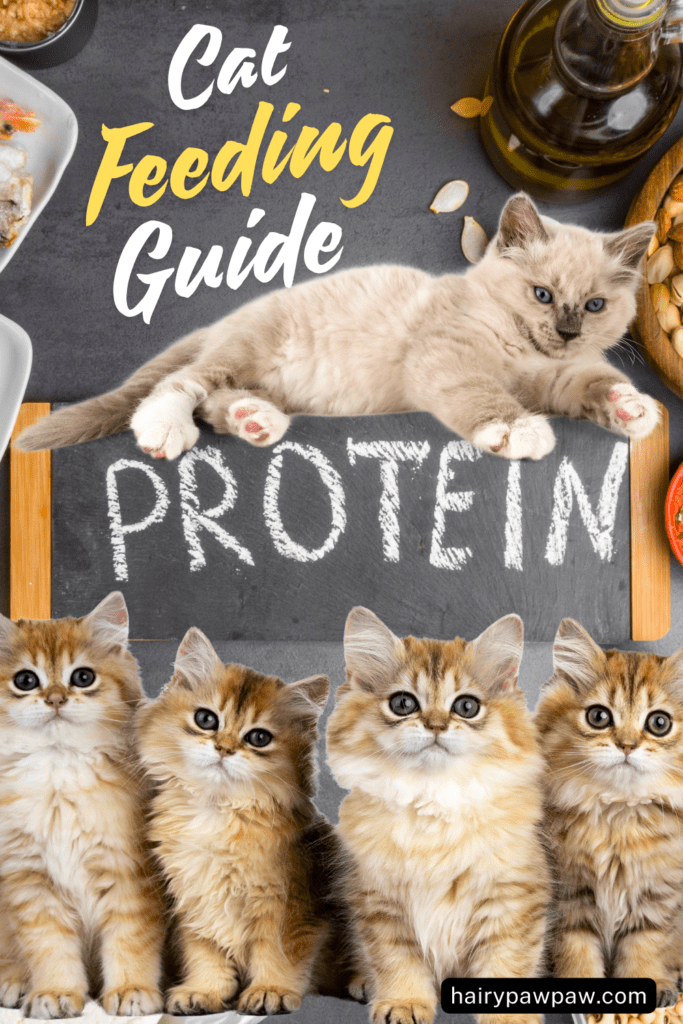
Cat Feeding Guide: Controlling Protein for Better Health
Ensuring your cat receives the right amount of protein greatly impacts their overall health, weight, and energy levels. Since cats are obligate carnivores, their bodies thrive on protein from animal sources. However, finding the right balance in protein intake matters because both excess and deficiency can lead to health issues.

